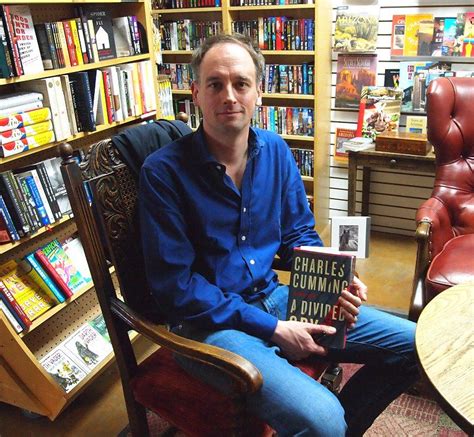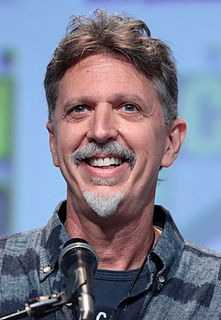A Quote by Charles Cumming
I find a difference in British spy fiction and American spy fiction. In the American version, it's more militaristic, partly because the CIA has more of the military makeup. Whereas MI6 is more of a cerebral, intelligence-based, relationship-based service, i.e., all they do is recruit people to get information out of them.
Related Quotes
Now, the relationship the storyteller has with the audience is a much higher quality relationship. You treat them with a lot more intelligence because the truth is that it's not my fault if you don't know what's going on. There are plenty of ways for you to find out. You can talk to all kinds of people, and you've got access to all this information. The onus is no longer on us, as a storyteller, to tell you. You can go out and find out yourself.
This Administration also puts forward a false choice between the liberties we cherish and the security we demand... That means no more illegal wire-tapping of American citizens. No more national security letters to spy on citizens who are not suspected of a crime. No more tracking citizens who do nothing more than protest a misguided war. No more ignoring the law when it is inconvenient. That is not who we are.
I'd be surprised if non-fiction writers hate to be interviewed. We all hate them, because there's really nothing to say except "Read the book." Right? At least with non-fiction, you can kind of convey some information, and people can decide for themselves whether they want more of that kind of information. But with a novel, what am I going to do?
I think it is immensely difficult to get the U.S. interested in non-U.S. topics. I don't think this is because the average American reader is disinterested, but more because of publishers playing it safe: if a thriller based in L.A. is a sure winner, why spend money plugging one based in Paris - or Bangkok?
With fiction, you are creating an imaginary world. And it can be a very mechanical process. In a fictional film, you create the characters who become "real people" when facing the camera. When you stop shooting, they change their costumes and become someone else. And people tend to believe in documentary more than fiction. Even if the fiction is based on a true story, everybody will say, "Oh, they're only actors."
Science fiction is a weird category, because it's the only area of fiction I can think of where the story is not of primary importance. Science fiction tends to be more about the science, or the invention of the fantasy world, or the political allegory. When I left science fiction, I said "They're more interested in planets, and I'm interested in people."
I think it is immensely difficult to get the U.S. interested in non-U.S. topics. I dont think this is because the average American reader is disinterested, but more because of publishers playing it safe: if a thriller based in L.A. is a sure winner, why spend money plugging one based in Paris - or Bangkok?
I find it interesting that authors of fantasy and science fiction novels are rarely asked if their books are based on their personal experiences, because all writing is based on personal experience. I may not have gone on an epic quest through a haunted forest, but the feelings in my books are often based on feelings I've had. Real-life events, in fantasy and science fiction, can take on metaphorical significance that they can't in a so-called realistic novel.
The enemy's spies who have come to spy on us must be sought out, tempted with bribes, led away and comfortably housed. Thus they will become double agents and available for our service. It is through the information brought by the double agent that we are able to acquire and employ local and inward spies. It is owing to his information, again, that we can cause the doomed spy to carry false tidings to the enemy.





































